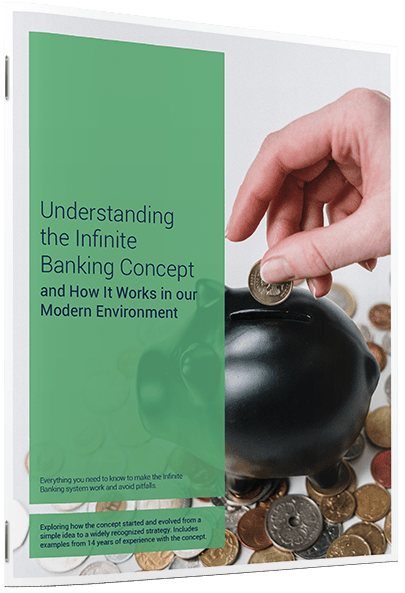702-660-7000
702-660-7000

In her book “All Your Worth,” , Senator Elizabeth Warren introduced and popularized what is now widely known as the 50/20/30 budget rule. This simple budgeting strategy divides your after-tax income into three broad categories: needs, savings, and wants. According to Warren, 50% of your income should go toward essential living expenses—things you can’t live without. This includes:
Housing costs like rent or mortgage payments
Transportation costs including car payments, fuel, or public transit
Everyday necessities like groceries, clothing, and utility bills
Insurance premiums (health, auto, home, etc.)
Minimum required payments on credit cards or other unsecured debts
Warren then recommends allocating 20% of your income toward savings. Under this umbrella, she includes various financial vehicles that can help build long-term wealth or cushion you in times of need. These include:
Contributions to employer-sponsored retirement plans like 401(k)s or 403(b)s
IRA contributions (traditional or Roth)
Mutual fund investments
Cash saved in an emergency fund or high-yield savings account
Direct purchase of individual stocks and bonds
Paying down debt beyond the minimum payments to reduce future interest costs
While not all of these are technically “savings” in the traditional sense—some are investments or debt repayment—Warren groups them together as part of your overall effort to improve financial security and build wealth over time.
Finally, the remaining 30% of your income is yours to spend on personal wants and discretionary expenses. This is where you have some breathing room to enjoy life and treat yourself. Examples include:
Dining out or takeout
Subscriptions like Netflix or Spotify
Daily luxuries like coffee shop visits
Entertainment, hobbies, or shopping
Vacations or weekend getaways
While the 50/20/30 rule has its merits in offering a straightforward structure, it does have its critics. One of the biggest concerns is its lack of flexibility and personalization. The rigid percentages don’t account for individual financial goals, high cost-of-living areas, or differing debt loads.
Some may argue that following a budgeting strategy proposed by a politician—especially one involved in the same government that struggles to manage a national budget—might be ironic. While Warren’s approach may offer a starting point for those new to budgeting, it may not be the most balanced or realistic method for everyone, particularly in a world where economic pressures vary widely by region and circumstance.
To get a clearer picture of your financial standing, consider the following:
Data from the US Bureau of Labor Statistics shows that Americans typically need to spend more than 60% of their monthly income on essential expenses.
This adds up to 60.33%, and that’s before covering the minimum payments on your credit cards and other unsecured debts. So, if you’re following Warren’s 50/20/30 budget plan, you’re already exceeding your budget by over 10%.
There’s a more established and practical method for managing your finances that predates Senator Warren’s claims and academic journey. It’s known as the 10/20/70 Rule.
Under the 10/20/70 Rule, you allocate 70% of your income to essential and personal expenses, including:
This structure allows you to dedicate 20% of your income to cover minimum payments on credit cards and other non-secured debts. The remaining 10% (or potentially more, depending on your debt payments) is yours to save or use as you see fit.
Over time, the money you save will grow due to compound interest. This growth can help you cover 20% of your budget that might otherwise go to interest payments on debts. Considering the average American loses about $4,192 annually to credit card interest alone, adopting the 10/20/70 Rule could significantly increase your savings compared to the 50/20/30 plan proposed by Warren.
The suggestion here is that politicians, including Elizabeth Warren, might prefer constituents to remain financially dependent, potentially ensuring their continued role in governance.
However, by shifting your perspective from limiting beliefs about your financial worth to recognizing your true potential value, you can transform your financial future. It’s a straightforward change in mindset that can lead to substantial benefits.
When you avoid paying interest to others, your money continues to grow, especially if you use it to finance things you’d typically need a loan for. By keeping what you’d lose to interest, which averages about $4,192 annually, and earning a modest 6% return per year, you could amass $154,205 over two decades.
However, remember that investments come with their own costs, like taxes and trading fees. These can eat into your earnings, reducing your final amount. Taxes might take around 2% or more, and fees could be another 1% to 2%, leaving you with approximately $112,640, not $154,205. This estimate also assumes tax rates remain constant over the next 20 years.

Understanding the Infinite Banking Concept and How It Works In Our Modern Environment 31-page eBook from McFie Insurance Order here>
A smarter strategy to keep more of your money away from taxes and investment fees is to invest in Participating Whole Life Insurance. For instance, a healthy 45-year-old American man could use the $4,192 he saves each year to fund such a policy. This could result in $114,000 of guaranteed cash value and a death benefit exceeding $250,000.
This approach not only sidesteps the losses from taxes and fees but also taps into a strategy known to the wealthy: using your own money to maximize returns. Moreover, life insurance offers added benefits, such as providing for your loved ones and leaving a legacy, making it a more comprehensive financial plan.
However, this kind of thinking might not be popular with the government or fund managers because it encourages financial independence. This might explain why a plan like Elizabeth Warren’s 50/20/30 is promoted over the 10/20/70 Rule, as it keeps individuals more reliant on external financial systems.
Ready to see numbers on what it all looks like so you can be more financially independent? Call us at 702-660-7000.
 Tomas P. McFie DC PhD
Tomas P. McFie DC PhD
Tom McFie is the founder of McFie Insurance and co-host of the WealthTalks podcast which helps people keep more of the money they make, so they can have financial peace of mind. He has reviewed 1000s of whole life insurance policies and has practiced the Infinite Banking Concept for nearly 20 years, making him one of the foremost experts on achieving financial peace of mind. His latest book, A Biblical Guide to Personal Finance, can be purchased here.